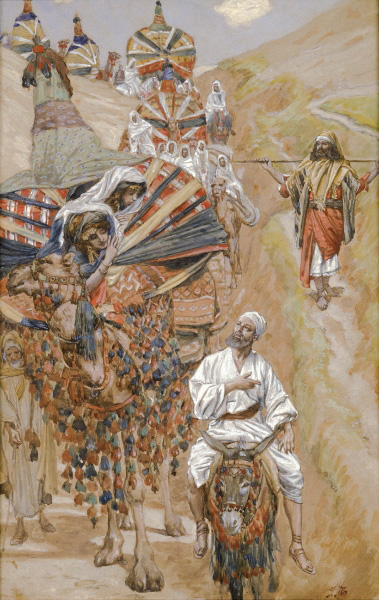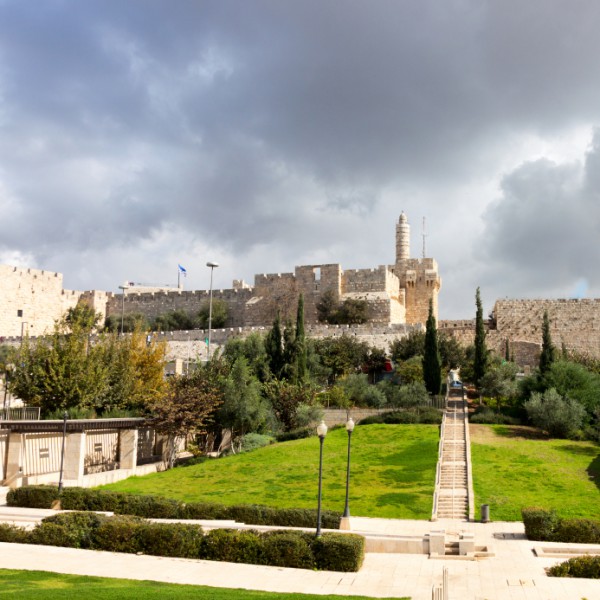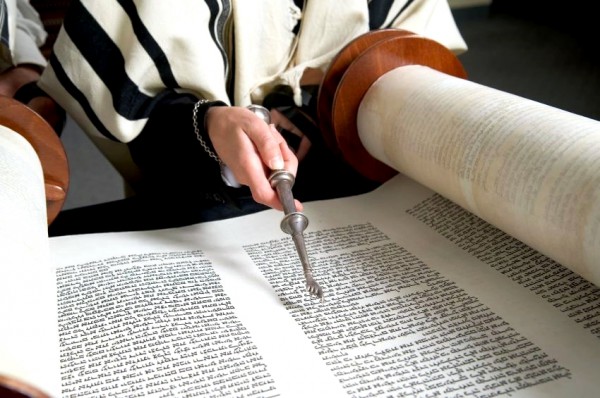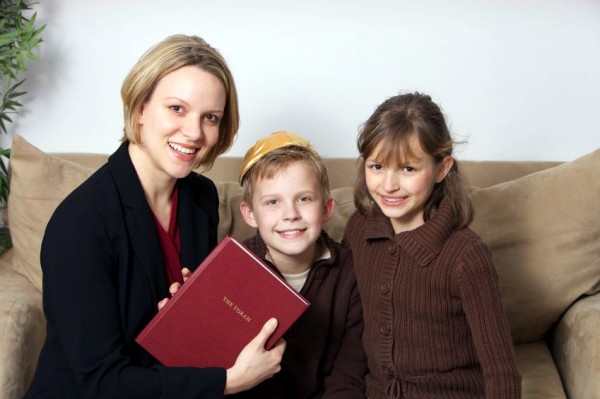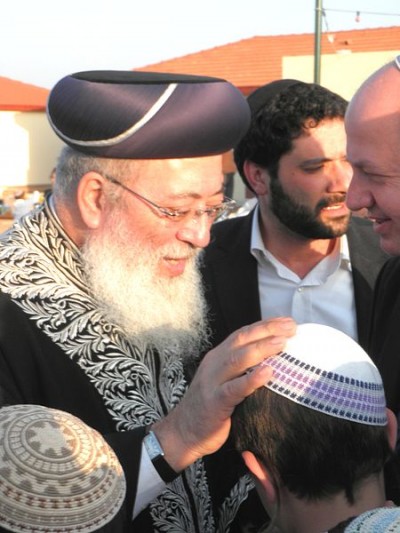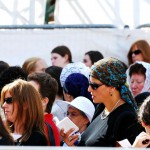Chayei Sarah (Life of Sarah)
Genesis 23:1–25:18; 1 Kings 1:1–31; Matthew 2:1–23
“Sarah lived [Chayei Sarah] to be a hundred and twenty-seven years old. She died at Kiryat Arba (that is, Hebron) in the land of Canaan, and Abraham went to mourn for Sarah and to weep over her.” (Genesis 23:1–2)
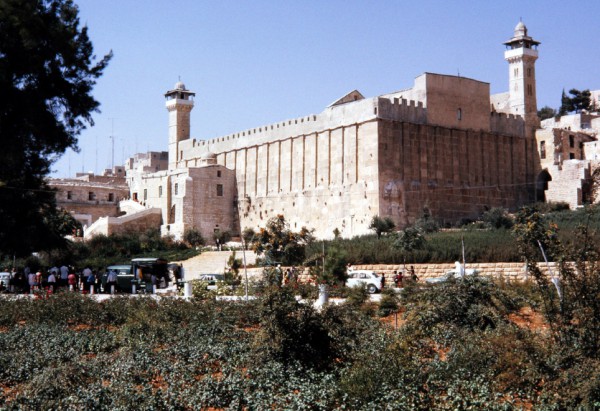
In today’s reading, Abraham purchases a series of caves and the adjoining field as a burial place. All of the patriarchs and matriarchs are buried there but Rachel. Because this site is the second most sacred site, after the Temple Mount, Herod built an impressive enclosure over the caves.
Last week, in Parasha Vayeira, Abraham and Lot separately entertained angels who declared that life-changing events were to come.
To Abraham, who had remained faithful to God, the angels announced that Sarah would give birth to a son in a year. To Lot, who was living in the midst of a depraved society, they announced the destruction of the city.
Although Chayei Sarah means the life of Sarah, this week’s Parasha actually begins with her death in Kiryat Arba (Hebron) at age 127.
Abraham buys a parcel of land for 400 shekels of silver as a family burial site—the Cave of Machpelah and its adjoining field—from Ephron the Hittite. There he buries his wife, Sarah.
“Listen to us. You are a mighty prince among us. Bury your dead in the choicest of our tombs. None of us will refuse you his tomb for burying your dead.” (Genesis 23:6)
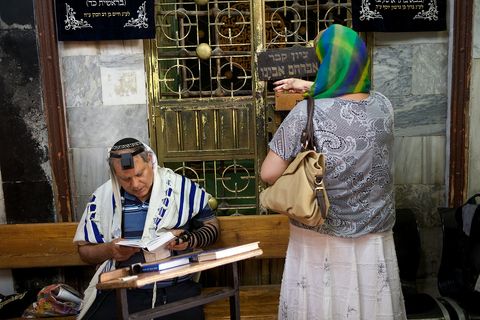
The Cave of the Patriarchs is called Ma’arat HaMachpela (Cave of the Double Tombs) in Hebrew. The Jewish People have prayed in the building above the tombs throughout the generations.
After the death of Sarah, Abraham instructs his senior servant to find a wife for Isaac among Abraham’s relatives.
His servant sets out for the town of Nahor with 10 of Abraham’s camels, each laden with gifts. When he arrives at the village well, he asks God for a sign:
“May it be that when I say to a young woman, ‘Please let down your jar that I may have a drink,’ and she says, ‘Drink, and I’ll water your camels too’—let her be the one you have chosen for your servant Isaac. By this I will know that you have shown kindness to my master.” (Genesis 24:12–14)
God answers his prayer, and Rebecca, the daughter of Abraham’s nephew Bethuel, provides water for him and his camels.
Rebecca returns with Abraham’s servant to the land of Canaan, and Isaac marries her, finding comfort after the death of his mother.
“Isaac brought her into the tent of his mother Sarah, and he married Rebecca. So she became his wife, and he loved her; and Isaac was comforted after his mother’s death.” (Genesis 24:67)
In this Parasha, Abraham outlives Sarah by 38 years. He marries Keturah and fathers several more children with her (Genesis 25:1–4).
Although he sends these children to the east to protect Isaac and the covenant that was to transform the world through him, he treats his children well by providing for them generously throughout his lifetime.
When he dies at the age of 175, his sons Isaac and Ishmael bury him next to Sarah in the Cave of Machpelah. Everything he owns is left to Isaac.
Aged King David Plans for the Future
“Now King David was old and advanced in years.” (1 Kings 1:1)
The Prophetic portion (Haftarah) is related to the Parasha by the theme of aging. The other theme that connects the Haftarah and the Parasha is that of passing the torch of leadership to the next generation, in other words, planned succession.
Both Abraham and David are described as old, and both make plans to secure their legacy to future generations.
Just as Abraham must take steps to ensure that all of his sons understand that Isaac will be his sole heir, King David, one of the greatest men of God of all times—a man after God’s own heart—must take proper steps to ensure that the right man sits on the throne after his death.
In this reading, David’s son Adoniyah takes advantage of his father’s age and feebleness and declares himself king.
God, however, had chosen David’s son Solomon to sit on the throne, not Adoniyah (1 Chronicles 28:5–7).
To save the life of Solomon and Bat Sheva, his mother, the prophet Nathan encourages her to go to King David to let him know what is transpiring with Adoniyah, and to plead with him to reaffirm Solomon as his successor.
While she is pouring out her heart to David, Nathan arrives to confirm everything that she is saying.
David responds immediately to the situation, swearing to Bat Sheva:
“As the Lord lives, who has redeemed my soul out of every adversity, as I swore to you by the Lord, the God of Israel, saying, ‘Solomon your son shall reign after me, and he shall sit on my throne in my place,’ even so will I do this day.” (1 Kings 1:29)
Securing the throne for his son, Solomon, was his last act before he passed.
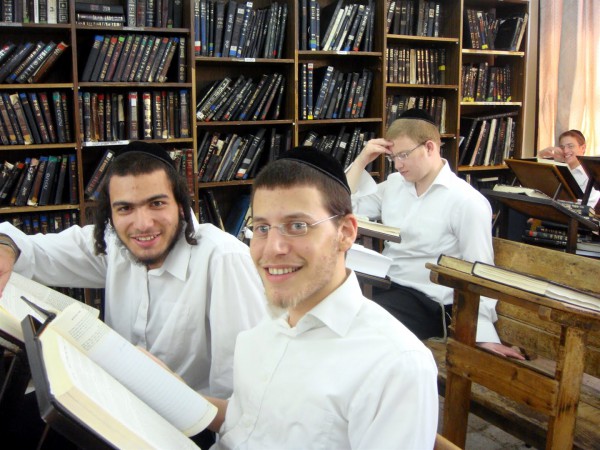
Orthodox Israeli Jewish youth study at a yeshiva (institute of learning where students focus on Torah and Talmud).
The Fruit of Discipline: Peace in the Home and Children Who Honor Their Parents
The readings this week present a stark contrast between Abraham’s household and David’s.
Abraham’s son Isaac so respected and trusted his father that he was willing to receive his direction and guidance even with something as important as the choice of a wife—and this at 40 years of age!
And when Abraham died, it seems, Isaac’s inheritance was unchallenged by his brothers.
Abraham’s ability to govern his family with peace and discipline is perhaps one of the reasons God chose him to be the father of the family of faith—of those who would accept and obey God’s instruction.
Unlike Abraham’s more peaceful, co-operative family environment, David’s household was full of strife and scheming.
In this Haftarah reading, Adoniyah shows himself willful and proud, and disrespectful, disobedient and rebellious toward his father. He doesn’t even wait for his father’s death before he exalts himself, saying, “I will be king!” (1 Kings 1:5)
Adoniyah is a vain, egotistical man, full of pride and selfish ambition. How did these traits take root in him when his father was a man after God’s own heart?
Part of the reason is that David did not discipline him properly by failing to challenge his behavior. Also, it seems that Adoniyah may have been such a handsome man that people let him off the hook when he needed to be reprimanded instead.
“And his father had not grieved him all his life in saying: ‘Why have you done this?’ and he was also a very handsome man.” (1 Kings 1:6)
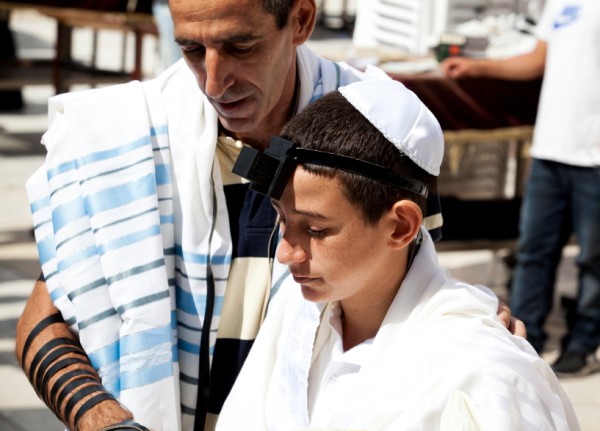
A father stands beside his son at the Western (Wailing) Wall as he wears tefillin (phylacteries) for the first time during his Bar Mitzvah, the Jewish rite of passage in which a young man accepts the responsibility to follow God’s commandments.
As Believers, we must make it more of a priority to raise godly children than happy children. We must, at times, grieve our children with appropriate discipline. Calm, consistent discipline develops Godly character.
Furthermore, children are happy and secure when proper boundaries are set for them.
It seems that David allowed Adoniyah to follow his own headstrong ways, and eventually, it cost Adoniyah his life. (1 Kings 2:1–24)
Other men of God also failed to train up their children in the ways of the Lord: Eli and Samuel did not have sons who followed the Lord and their families suffered grave consequences.
Believing parents must actively confront bad behavior. That takes commitment and energy. Although children may not immediately understand why they can’t do whatever comes naturally, they will eventually recognize that proper discipline is a mark of their parents’ love and respect.
“No discipline seems pleasant at the time, but painful. Later on, however, it produces a harvest of righteousness and peace for those who have been trained by it.” (Hebrews 12:11)
An Eternal Throne
“Your house and your kingdom shall be made sure forever before Me. Your throne shall be established forever.” (2 Samuel 7:16)
It was important that David take steps to establish the right man on the throne after him because God promised him that one of his descendants would sit on his throne forever!
“Once for all, I have sworn by my holiness—and I will not lie to David—that his line will continue forever and his throne endure before Me like the sun; it will be established forever like the moon, the faithful witness in the sky.” (Psalm 89:35–37)
Later, Isaiah prophesied that the Messiah would fulfill this promise to establish an everlasting kingdom on the throne of David:
“Of the greatness of His government and peace there will be no end. He will reign on David’s throne and over His kingdom, establishing and upholding it with justice and righteousness from that time on and forever.” (Isaiah 9:7)
Even the rabbis believe that the Messiah will be a direct descendant of David.
Yeshua (Jesus): The Son of David
Abraham and David’s faithfulness in following God’s instructions to secure a proper succession eventually brought forth their most important legacy—Yeshua HaMashiach (Jesus the Messiah).
Through the Messiah, Abraham became the father of all who believe:
“If you belong to Messiah, then you are Abraham’s seed, and heirs according to the promise.” (Galatians 3:29)
In chapter one of Luke in the Brit Chadashah (New Covenant), the Angel Gabriel visits Miryam (Mary), telling her that she would supernaturally conceive a child who would inherit the throne of His father David:
“You will conceive and give birth to a son, and you are to call Him Yeshua. He will be great and will be called the Son of the Most High. The Lord God will give Him the throne of his father David, and He will reign over Jacob’s descendants forever; His kingdom will never end.” (Luke 1:31–33)
This was in direct fulfillment of several Messianic Prophecies, including Isaiah 7:14, Isaiah 9:6–7, and Jeremiah 23:5.
The prophet Isaiah foretold that the son born to a Jewish virgin would sit upon the throne of His father, David. This rightful ruler would reign over the Kingdom forever with justice and perfect righteousness.
“The days are coming,” declares the LORD, “when I will raise up for David a righteous Branch, a King who will reign wisely and do what is just and right in the land.” (Jeremiah 23:5)




